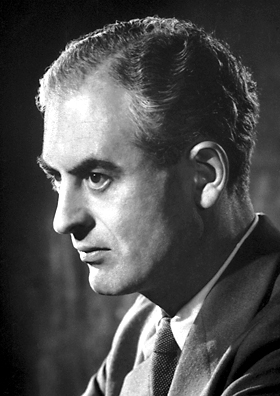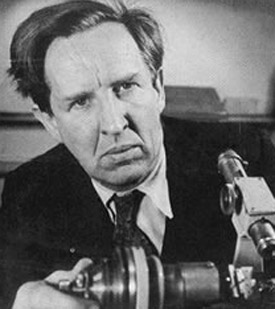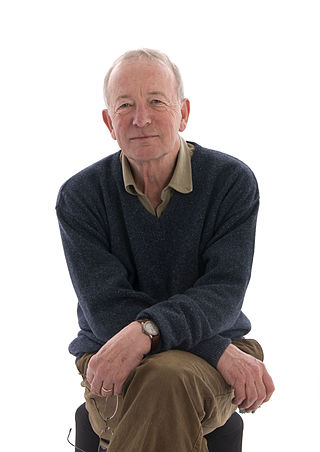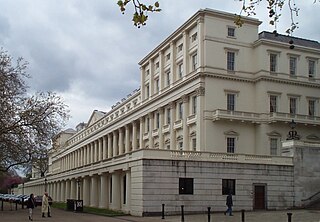Related Research Articles

Max Ferdinand Perutz was an Austrian-born British molecular biologist, who shared the 1962 Nobel Prize for Chemistry with John Kendrew, for their studies of the structures of haemoglobin and myoglobin. He went on to win the Royal Medal of the Royal Society in 1971 and the Copley Medal in 1979. At Cambridge he founded and chaired (1962–79) The MRC Laboratory of Molecular Biology (LMB), fourteen of whose scientists have won Nobel Prizes.

Sir James Dewar was a British chemist and physicist. He is best known for his invention of the vacuum flask, which he used in conjunction with research into the liquefaction of gases. He also studied atomic and molecular spectroscopy, working in these fields for more than 25 years.

Sir Peter Brian Medawar was a British biologist and writer, whose works on graft rejection and the discovery of acquired immune tolerance have been fundamental to the medical practice of tissue and organ transplants. For his scientific works, he is regarded as the "father of transplantation". He is remembered for his wit both in person and in popular writings. Richard Dawkins referred to him as "the wittiest of all scientific writers"; Stephen Jay Gould as "the cleverest man I have ever known".

The Royal Institution of Great Britain is an organisation for scientific education and research, based in the City of Westminster. It was founded in 1799 by the leading British scientists of the age, including Henry Cavendish and its first president, George Finch. Its foundational principles were diffusing the knowledge of, and facilitating the general introduction of useful mechanical inventions and improvements, as well as enhancing the application of science to the common purposes of life.

Dame Susan Jocelyn Bell Burnell is an astrophysicist from Northern Ireland who, as a postgraduate student, discovered the first radio pulsars in 1967. The discovery eventually earned the Nobel Prize in Physics in 1974; however, she was not one of the prize's recipients.

John Desmond Bernal was an Irish scientist who pioneered the use of X-ray crystallography in molecular biology. He published extensively on the history of science. In addition, Bernal wrote popular books on science and society. He was a communist activist and a member of the Communist Party of Great Britain (CPGB).

Conrad Hal Waddington was a British developmental biologist, paleontologist, geneticist, embryologist and philosopher who laid the foundations for systems biology, epigenetics, and evolutionary developmental biology.

Nicholas Keynes Humphrey is an English neuropsychologist based in Cambridge, known for his work on evolution of primate intelligence and consciousness. He studied mountain gorillas with Dian Fossey in Rwanda; he was the first to demonstrate the existence of "blindsight" after brain damage in monkeys; he proposed the theory of the "social function of intellect". He is the only scientist to have edited the literary journal Granta.

John Zachary Young FRS, generally known as "JZ" or "JZY", was an English zoologist and neurophysiologist, described as "one of the most influential biologists of the 20th century".
Philip Ball is a British science writer. For over twenty years he has been an editor of the journal Nature, for which he continues to write regularly. He is a regular contributor to Prospect magazine and a columnist for Chemistry World, Nature Materials, and BBC Future.

Dame Anne Laura Dorinthea McLaren, was a British scientist who was a leading figure in developmental biology. She paved the way for women in science and her work helped lead to human in vitro fertilisation (IVF). She left an enduring legacy marked by her research and ethical contributions to the field. She received many honors for her contributions to science, including election as fellow of the Royal Society.

Peter Gavin Hall was an Australian researcher in probability theory and mathematical statistics. The American Statistical Association described him as one of the most influential and prolific theoretical statisticians in the history of the field. The School of Mathematics and Statistics Building at The University of Melbourne was renamed the Peter Hall building in his honour on 9 December 2016.

The Royal Society presents numerous awards, lectures and medals to recognise scientific achievement. The oldest is the Croonian Lecture, created in 1701 at the request of the widow of William Croone, one of the founding members of the Royal Society. The Croonian Lecture is still awarded on an annual basis, and is considered the most important Royal Society prize for the biological sciences. Although the Croonian Lecture was created in 1701, it was first awarded in 1738, seven years after the Copley Medal, which is the oldest Royal Society medal still in use and is awarded for "outstanding achievements in research in any branch of science".
The Bernal Lecture was an annual lecture on the social function of science organised by the Royal Society of London and endowed by Professor John Desmond Bernal. It was last delivered in 2004, after which it was merged with the Wilkins Lecture and Medawar Lecture to form the Wilkins-Bernal-Medawar Lecture.
The Medawar Lecture was an annual lecture on the philosophy of science organised by the Royal Society of London in memory of Sir Peter Medawar. It was last delivered in 2004 after which it was merged with the Wilkins Lecture and the Bernal Lecture to form the Wilkins-Bernal-Medawar Lecture.
The Wilkins Lecture was a lecture organised by the Royal Society of London on the subject of the history of science and named after John Wilkins, the first Secretary of the Society. The last Wilkins lecture was delivered in 2003, after which it was merged with the Bernal Lecture and the Medawar Lecture to form the Wilkins-Bernal-Medawar Lecture.

Thomas Charles Buckland McLeish was a British theoretical physicist.

Hasok Chang is a Korean-born American historian and philosopher of science currently serving as the Hans Rausing Professor at the Department of History and Philosophy of Science at the University of Cambridge and a board member of the Philosophy of Science Association. He previously served as president of the British Society for the History of Science from 2012 to 2014.

June Barrow-Green is a professor of History of Mathematics at the Open University and a visiting professor at the London School of Economics.
Michela Massimi is an Italian and British philosopher of science, a professor of philosophy at the University of Edinburgh, and the president-elect of the Philosophy of Science Association. Her research has involved scientific perspectivism and perspectival realism, the Pauli exclusion principle, and the work of Immanuel Kant.
References
- ↑ The uses of infinity: a philosopher looks at emergent phenomena in physics by Jeremy Butterfield on YouTube, 2012-09-26
- 1 2 3 4 5 6 7 8 9 10 11 12 13 14 "Wilkins-Bernal-Medawar Medal and Lecture".
- ↑ "Lectures from the archive: Contemporary art and the obsession with science". YouTube. 6 March 2024. Retrieved 12 May 2024.
- ↑ "Lectures from the archive: The social function of history and twentieth-century science". YouTube. 6 March 2024. Retrieved 12 May 2024.
- ↑ Bragg, M. (2010). "Wilkins Medawar Bernal Lecture 2010 * Observations of an Amateur on the History of the Royal Society 1660-2010". Notes and Records of the Royal Society. 64 (3): 201–212. doi:10.1098/rsnr.2010.0018. ISSN 0035-9149.
- ↑ Heroes of Science by Roger Highfield on YouTube, 2012-09-26
- ↑ Who cares about the history of science? on YouTube
- ↑ "The curious history of curiosity-driven research". YouTube. 6 March 2024. Retrieved 12 May 2024.
- ↑ "Why philosophy of science matters to science". YouTube. 6 March 2024. Retrieved 12 May 2024.
- ↑ "Life begins at 40: the biological and cultural roots of the midlife crisis". YouTube. 6 March 2024. Retrieved 12 May 2024.
- ↑ "Defining science through history". YouTube. 6 March 2024. Retrieved 12 May 2024.
- ↑ "Jim Al-Khalili and Adam Rutherford: what is quantum biology?". YouTube. 6 March 2024. Retrieved 12 May 2024.
- ↑ "The history of women and maths". YouTube. 6 March 2024. Retrieved 12 May 2024.
- ↑ "Remaking Ourselves: Wilkins-Bernal-Medawar Medal lecture at The Royal Society, May 2023". YouTube. 6 March 2024. Retrieved 12 May 2024.
- ↑ "Talking embryos: changing public perceptions of embryo research". YouTube. 6 March 2024. Retrieved 12 May 2024.